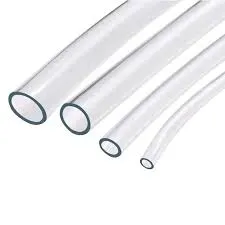Říj . 10, 2024 16:28 Back to list
hdpe panel
Understanding HDPE Panels Versatile Solutions for Modern Applications
High-Density Polyethylene (HDPE) panels have gained significant popularity in various industries due to their durability, versatility, and environmental benefits. These panels, made from a thermoplastic polymer, offer a wide range of properties and applications, making them an ideal choice for both commercial and residential use.
What are HDPE Panels?
HDPE panels are sheets made from high-density polyethylene, a type of plastic known for its high strength-to-density ratio. The production of HDPE involves the polymerization of ethylene, which is derived from petroleum. The resultant material is resistant to impact, chemicals, and moisture, making it suitable for various applications that demand high performance and longevity.
Key Benefits of HDPE Panels
1. Durability One of the most significant advantages of HDPE panels is their strength. They are designed to withstand harsh weather conditions, heavy impacts, and corrosive substances, making them ideal for outdoor and industrial applications.
2. Lightweight Despite their robust nature, HDPE panels are lightweight, which makes them easier to handle and install. This attribute is particularly beneficial in construction and renovation projects where reducing labor costs and time is crucial.
3. Chemical Resistance HDPE panels resist a wide array of chemicals, including acids, bases, and solvents. This property makes them widely used in chemical storage, waste management, and food processing industries.
4. Moisture Resistance Being impermeable to moisture, HDPE panels do not absorb water, preventing issues like warping, mold growth, and decomposition, which can occur in organic materials.
5. Eco-Friendly HDPE is a recyclable material, contributing to sustainability efforts. Used HDPE panels can be reprocessed and transformed into new products, reducing waste in landfills.
hdpe panel

6. Versatility These panels can be manufactured in various thicknesses, colors, and textures, allowing for customization according to specific project requirements. Whether for signage, protective barriers, or structural applications, HDPE panels can meet diverse needs.
Applications of HDPE Panels
The applications of HDPE panels are extensive and continually expanding
1. Construction and Architecture In building projects, HDPE panels are utilized for façade cladding, roofing systems, and as impact-resistant barriers. Their lightweight and durable nature makes them an attractive option for modern architectural designs.
2. Agriculture In the agricultural sector, HDPE panels are used for greenhouse structures, water tanks, and storage sheds. Their moisture resistance and durability contribute to effective and long-lasting solutions in farming environments.
3. Transportation HDPE panels are used in manufacturing dashboards, fuel tanks, and body components for vehicles. Their lightweight properties help improve fuel efficiency.
4. Marine Applications Due to their resistance to saltwater and UV rays, HDPE panels are widely used in the boating industry for docks, kayaks, and other marine products.
5. Waste Management HDPE panels are used in producing containers for recycling and waste disposal, given their resistance to chemicals and ability to withstand harsh environments.
Conclusion
In conclusion, HDPE panels represent a remarkable blend of durability, versatility, and sustainability. As industries continue to seek materials that align with eco-friendly practices while meeting high-performance standards, HDPE panels stand out as one of the most reliable options. Their wide range of applications highlights their importance in modern construction, agriculture, transportation, and more, proving that they are not just a product, but a solution for a variety of challenges in contemporary life.
-
Durable PP Rigid Sheet: Lightweight, Chemical Resistant Solutions
NewsAug.21,2025
-
PVC Grey Sheet for Extraction: Chemical Resistant & Durable
NewsAug.19,2025
-
Durable PVC Pipe Fittings for Plumbing & Irrigation Needs
NewsAug.18,2025
-
HDPE Steel Belt Reinforced Spiral Corrugated Pipe | High Strength
NewsAug.17,2025
-
HDPE Pipe Fittings: Durable, Leak-Proof Solutions
NewsAug.16,2025
-
Premium CPVC Sheet: High-Temp & Chemical Resistant Solutions
NewsAug.15,2025

